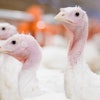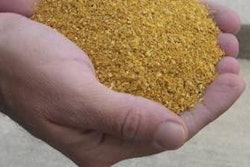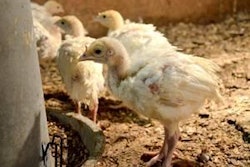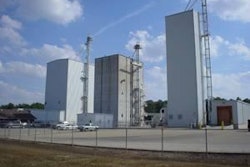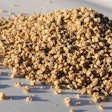A recent U.S. Department of Agriculture-funded study conducted at Michigan State University has shown that changes to the diets fed to turkey toms may reduce nitrogen emissions from grow-out farms without sacrificing meat yields.
Researchers from Michigan State University, the University of Maryland and Purdue University studied the effect of diets containing different concentrations of crude protein and different amino acid (AA) supplementations on nutrient retention and excretion by turkeys. They observed that decreasing dietary crude protein from 110% to 100% of the amount recommended by the National Research Council, and adding threonine to an AA supplementation of lysine and methionine, resulted in lower nitrogen excretion (by 12%) and a lower cumulative loss of ammonia (by 23%) when compared with diets containing only two supplemental amino acids. There were no differences in tom growth or feed conversion.
The Environmental Protection Agency monitors emissions of air pollutants, such as particulate matter, ammonia, hydrogen sulfide and volatile organic compounds (VOCs), under the U.S. Clean Air Act of 1990. In 2005 the EPA announced an air quality compliance agreement to address emissions from certain animal feeding operations or AFOs.
“The goals of the 2005 EPA agreement include ensuring compliance with applicable CERCLA [Clean Air Act, Comprehensive Environmental Response, Compensation and Liability Act] and EPCRA [Environmental Planning and Community Right-to-Know Act] provisions," said Dr. Zefei Liu, research associate at Michigan State University and one of the authors of the study. "Because some of these provisions carry hefty penalties for non-compliance, it is important for the poultry industry to continue to search for methods to monitor and control nutrient losses and air emissions from their operations. We hope that the findings of our study will contribute to this effort.”
Details of the study were published in a recent issue of Poultry Science.
